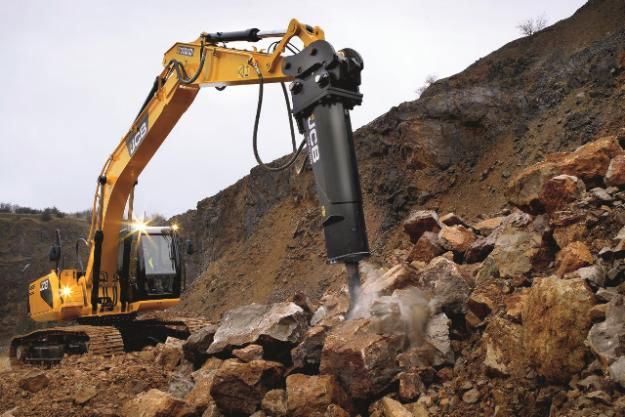Affordable Lancaster Excavation - Quality Excavation at Competitive Prices
Affordable Lancaster Excavation - Quality Excavation at Competitive Prices
Blog Article
Comprehensive Excavation Strategies: Mastering the Principles for Success
In the world of building and civil design, the value of effective excavation methods can not be overemphasized. The cautious planning, accurate execution, and careful focus to detail required in excavation jobs require a comprehensive method that includes different basic facets. From initial soil analysis to the application of security steps and routine development tracking, grasping these core elements is vital for accomplishing success in any kind of excavation venture. The true mastery lies not merely in comprehending these basics however in seamlessly incorporating them to browse the intricacies of excavation tasks with skill.
Understanding Excavation Project Preparation

Successful excavation projects are constructed on the foundation of comprehensive and thorough preparation. The preliminary stage of any excavation project is the preparation stage, where critical decisions are made that can significantly influence the end result of the project. During this stage, it is important to gather all pertinent info about the website, including topographical studies, soil make-up, and any prospective threats that may exist. Comprehending the task timeline, range, and spending plan restraints is crucial for producing a thorough excavation strategy that ensures the project's success.
One trick facet of excavation job preparation is the advancement of an in-depth timeline that lays out the series of milestones, activities, and target dates. This timeline functions as a roadmap for the task team, permitting them to track progression and make needed adjustments to make certain the project remains on routine. Furthermore, a distinct budget plan that makes up all expenditures, consisting of devices service, labor expenses, and materials, is crucial for preventing cost overruns and delays. By meticulously thinking about all these factors throughout the planning stage, excavation tasks can be implemented successfully and properly, causing effective results.
Dirt Evaluation and Site Evaluation
Conducting detailed soil evaluation and website examination is an essential step in the prep work stage of any excavation project. Soil evaluation involves figuring out the make-up, structure, and properties of the soil at the excavation site. This details is important for recognizing the dirt's bearing capability, wetness web content, and possibility for disintegration, which are key variables in determining the excavation techniques and tools required for the task.
Website analysis exceeds dirt analysis and includes a broader assessment of the overall website problems. This analysis consists of determining any type of possible risks, such as underground energies, environmental issues, or unsteady terrain, that could affect the excavation process. By thoroughly evaluating the site, task managers can create effective excavation techniques that prioritize safety, performance, and environmental management.
Utilizing innovative modern technologies like ground-penetrating radar, dirt tasting, and drone studies can enhance the precision and effectiveness of soil evaluation and website assessment. Investing time and sources in these preliminary steps can inevitably conserve time and avoid costly hold-ups or problems during the excavation procedure.
Devices Selection and Utilization
Efficient excavation tasks depend greatly on calculated devices choice and utilization to make sure ideal performance and efficiency. Choosing the appropriate devices for the task is important in making best use of effectiveness and reducing downtime. Variables such as the type of dirt, depth of excavation, and project range play a significant function in determining one of the most appropriate equipment for the task handy.
In enhancement to selecting the proper equipment, proper utilization is crucial to task success. Operators should be trained to handle the tools safely and efficiently - excavating ohio. Routine maintenance checks and timely fixings aid protect against failures and make sure constant efficiency throughout the job
Safety Measures and Rules Conformity
In the realm of excavation projects, focusing on safety and security procedures and conformity with guidelines is critical to making sure a legally audio and safe operational setting. Safety and security procedures encompass a series of methods, including performing detailed website assessments, applying appropriate signage and obstacles, and offering adequate security training for all personnel entailed in the excavation process. Adherence to laws, such as OSHA demands in the United States, makes sure that the excavation project fulfills the required criteria to safeguard employees, onlookers, and the surrounding setting.

Monitoring Progression and Adjusting Approaches
Just how can project supervisors effectively track the improvement of excavation tasks and adapt their approaches accordingly to enhance end results? Tracking progression is important for making sure that excavation tasks stay on track and satisfy target dates.

Final Thought
To conclude, understanding the basics of comprehensive excavation strategies is crucial see this here for the success of any task. By comprehending project planning, examining dirt and site conditions, selecting suitable tools, adhering to security regulations, and keeping track of development, job supervisors can make sure a effective and smooth excavation procedure. Implementing these strategies will lead to successful end results and minimize potential risks or obstacles throughout the excavation project.
The first phase of any type of excavation task is the planning stage, where crucial choices are made that can dramatically impact the result of the project. Recognizing the project range, spending plan, and timeline restrictions is critical for creating a detailed excavation strategy that my explanation makes certain the task's success.
Just how can forecast managers efficiently track the innovation of excavation tasks and adapt click resources their techniques as necessary to maximize end results? By very closely monitoring progression and being eager to adapt techniques, task supervisors can improve the overall success of excavation tasks.
By comprehending job planning, examining dirt and website conditions, selecting appropriate equipment, complying with security regulations, and checking progress, project managers can ensure a smooth and efficient excavation process.
Report this page